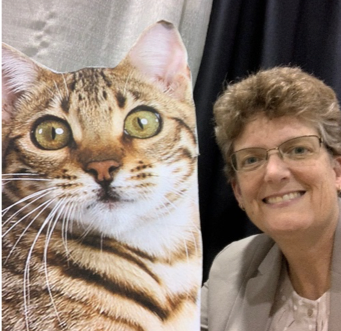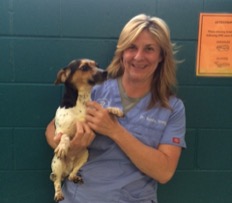
October 2, 2019 by Jody Gookin, DVM and Sandra Strong, DVM
Audience: Shelter/Rescue Staff & Volunteers, Veterinary Team
Video Length: 36 Minutes
Diarrhea in orphaned shelter kittens can be extremely difficult to manage, but recent studies point to successful new treatments. In this free 30-minute webcast, Drs. Jody Gookin and Sandra Strong provide information for veterinarians and medical support staff on survival statistics and novel treatments for orphan kitten diarrhea. The information is based on a recently published study evaluating significant associations between treatment interventions and survival of orphan shelter kittens with diarrhea. The study was performed in an open intake municipal animal shelter.
Participants will gain knowledge of evidence-based treatment strategies associated with live outcomes of orphan kittens that develop diarrhea.
Topics covered:
- Shelter challenges with orphan kittens
- Current treatment modalities for kitten diarrhea and evidence-based treatment options
- Clinical discussion of study results
- New frontiers and unanswered questions
- Kitten micronutrients and the microbiome effects on immunity and health.
This program has been approved by the AAVSB RACE program for 30 minutes of continuing education in jurisdictions which recognize AAVSB RACE approval. Please contact the AAVSB RACE program at race@aavsb.org or 877-698-8482 should you have any comments/concerns regarding this program's validity or relevancy to the veterinary profession, or if you have questions regarding this notification.
This course has been pre-approved for 30 minutes of Certified Animal Welfare Administrator continuing education credits by The Association for Animal Welfare Advancement.

About Jody Gookin
Dr. Jody Gookin is nationally recognized for her expertise in gastroenterology with a special emphasis on infectious causes of feline diarrheal disease. Dr. Gookin and her colleagues are credited with identification of Tritrichomonas foetus as a previously unrecognized cause of diarrhea in domestic cats and have dedicated over 15 years of research effort into establishing the pathogenicity, means for diagnosis, worldwide significance, and an effective treatment for this infection.
Dr. Gookin received her Doctor of Veterinary Medicine degree from the University of California at Davis and a PhD in Gastrointestinal Physiology at North Carolina State University. She completed the Small Animal Internal Medicine Clinician Scientist training program at North Carolina State University where she became a Diplomate of the American College of Veterinary Internal Medicine.

About Sandra Strong
Dr. Strong is currently the Chief Veterinarian for Wake County Animal Services and a Diplomat of the American College of Animal Welfare. Dr. Strong's professional and research interests include collaborative approaches to animal hoarding, improving the welfare of shelter animals and training for animal welfare professionals.
Dr. Strong received her Doctor of Veterinary Medicine degree from North Carolina State University. She worked several years in private practice, served in the US Army and eventually seized the opportunity to move into shelter medicine as Staff Veterinarian for the City of San Antonio Animal Care Services.
.